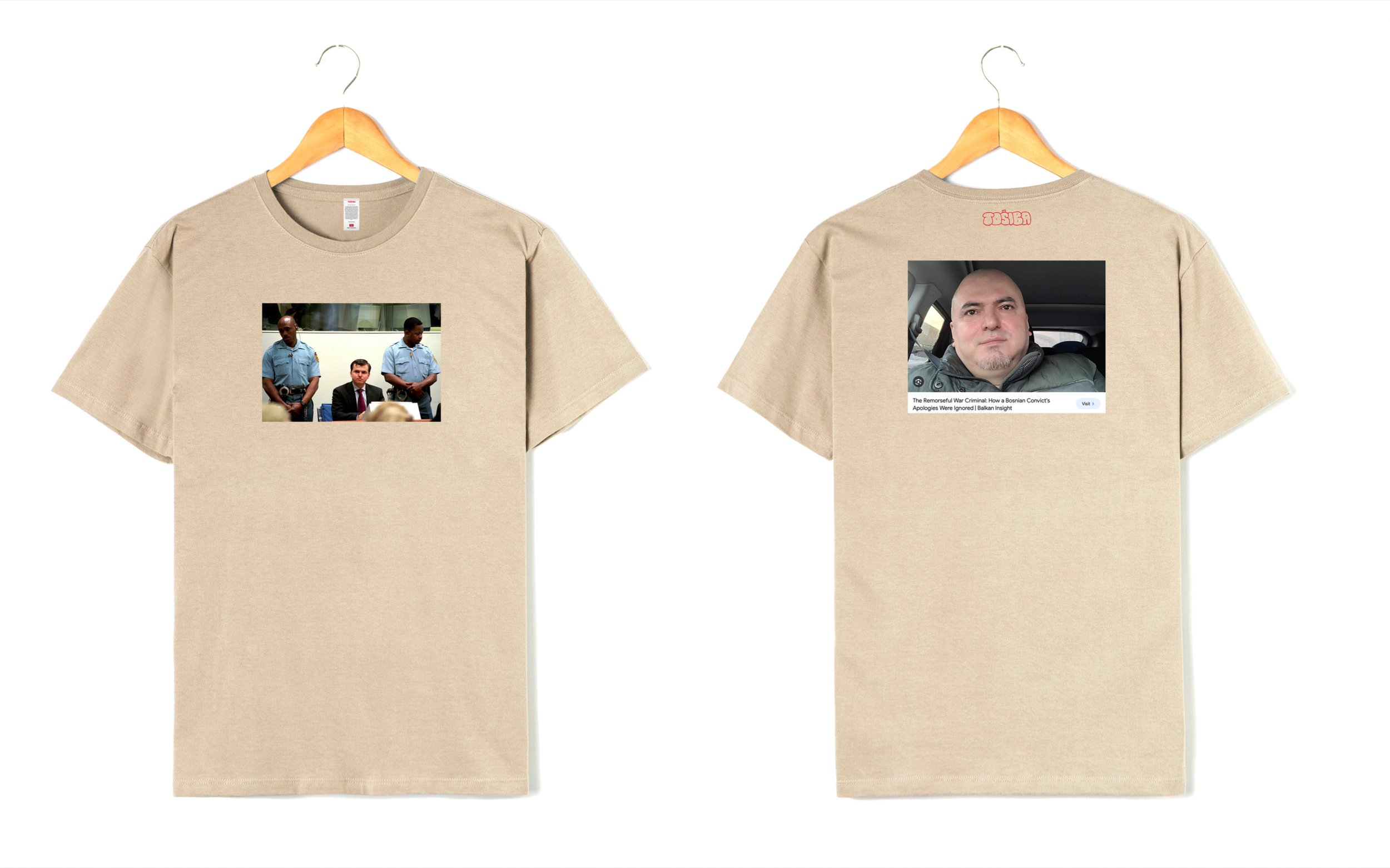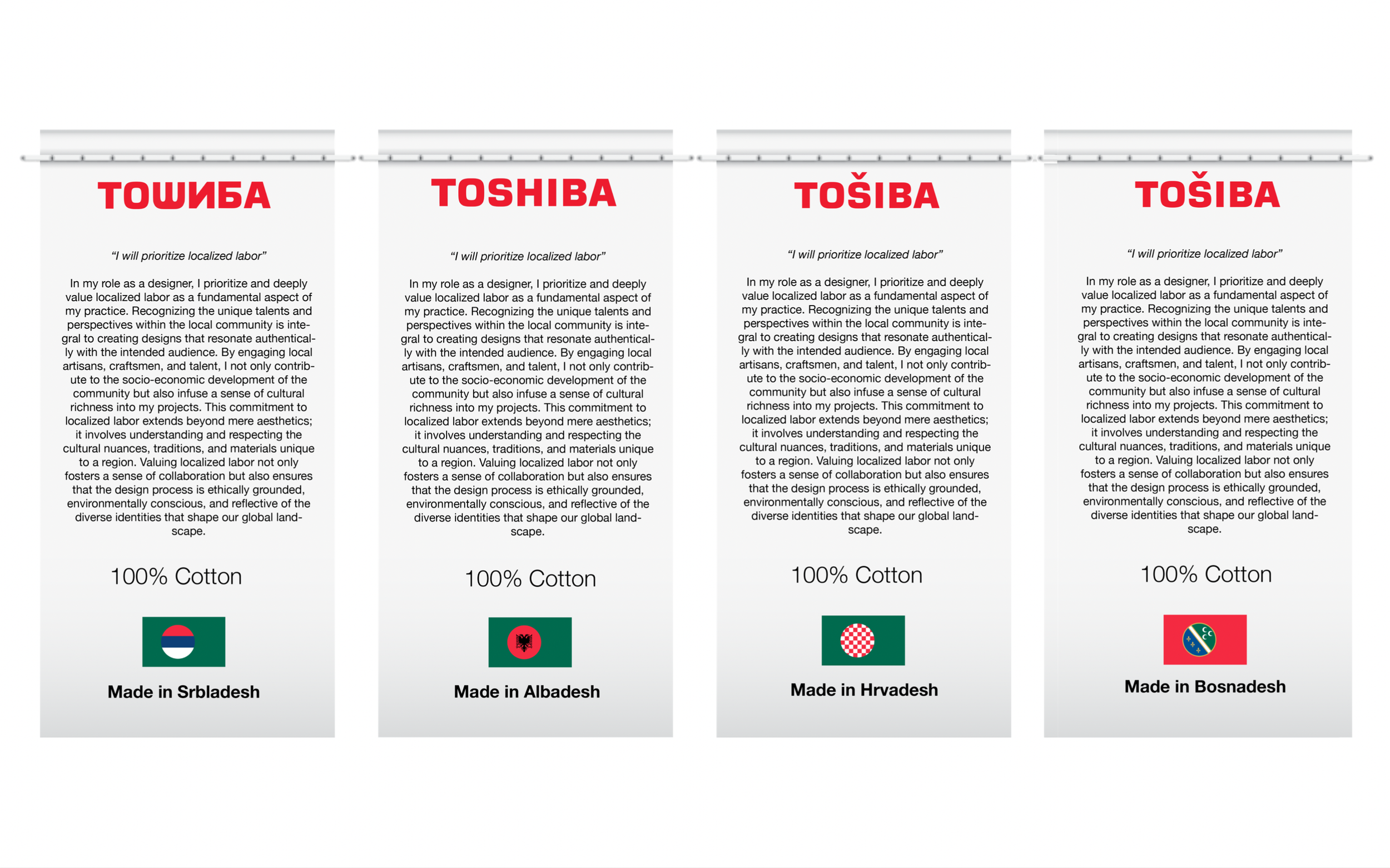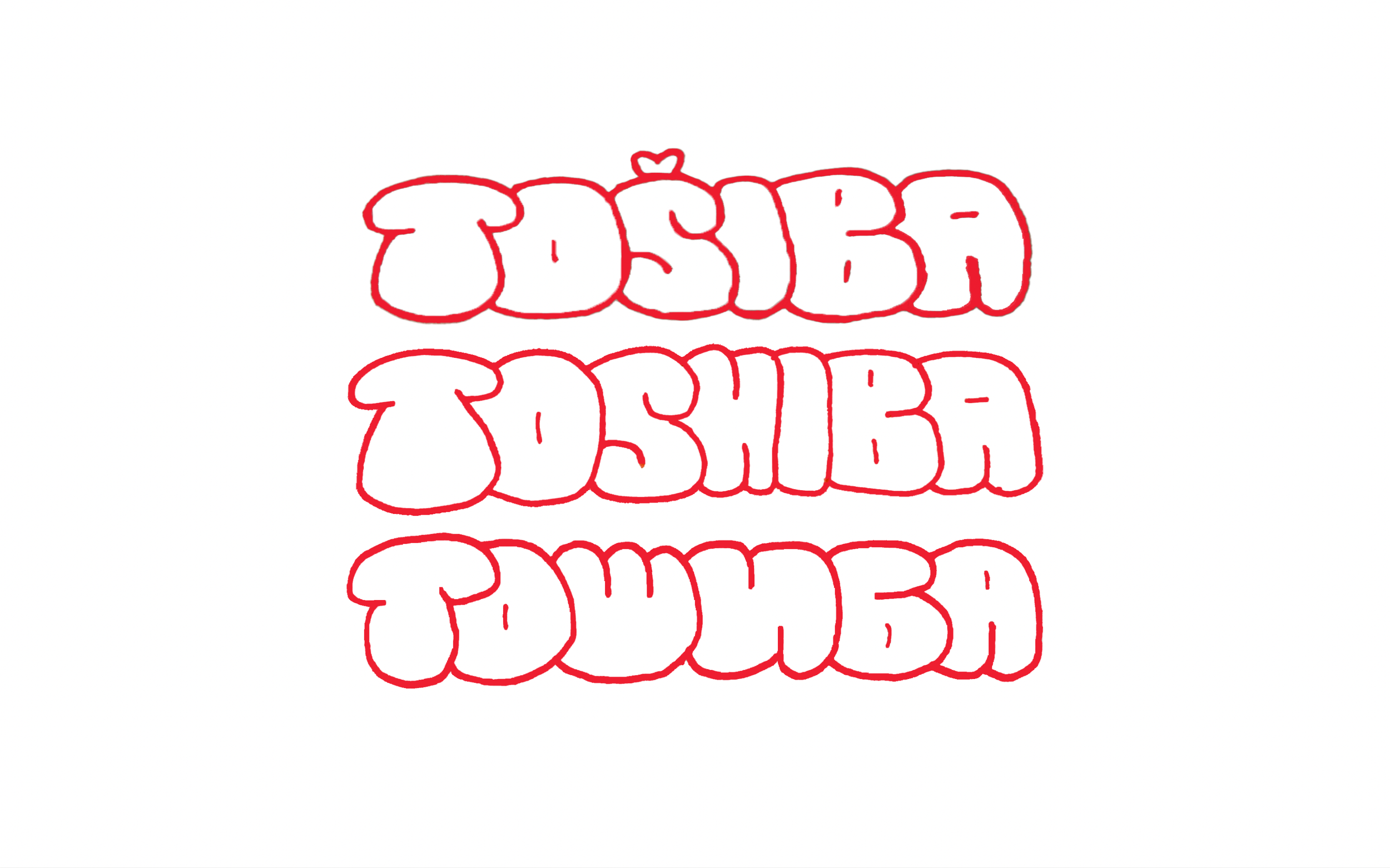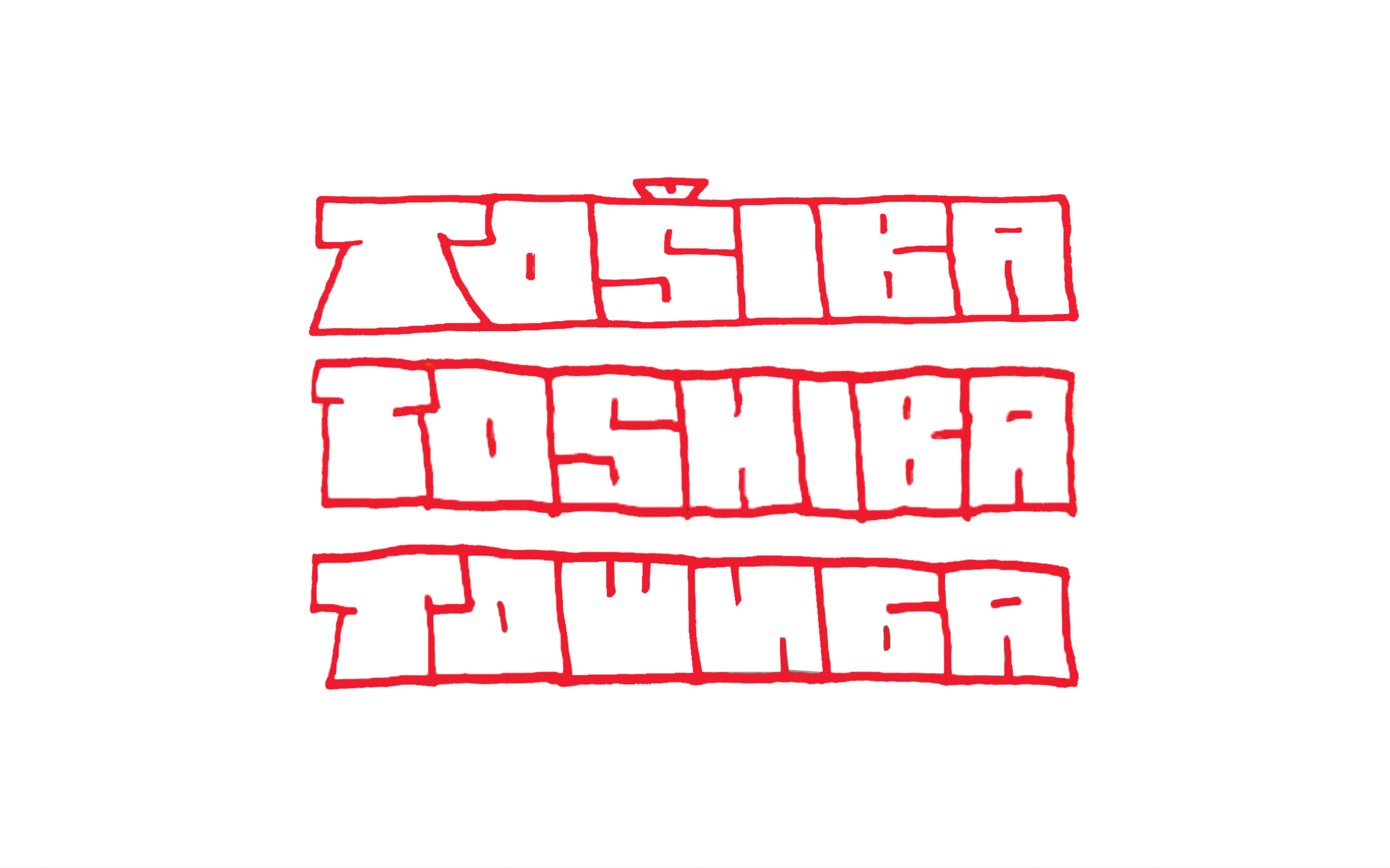Class Ethical Decisions and Leadership
Year Fall 2023
ТОШИБА
Project Type Fictional Design | Ethics | Principles Alignment
A satirical exploration of my ethical design principles through a fictional clothing brand, its “new” T-shirt collection, and its online store
As a creative, many principles shape the way I approach my work and life. For my Ethical Decisions and Leadership course final, we were asked to visually represent four principles that will guide us through our creative practice and professional endeavors. To represent my principles, I approached the project using paradox and satire. Through a fictional clothing brand called Toshiba, its online store, and its new T-shirt collection that explores the atrocities committed by war criminals from the Yugoslav wars of the 90s, I present my four key principles:
Intellectual Property | Accountability | Localized Labor | Right to Privacy



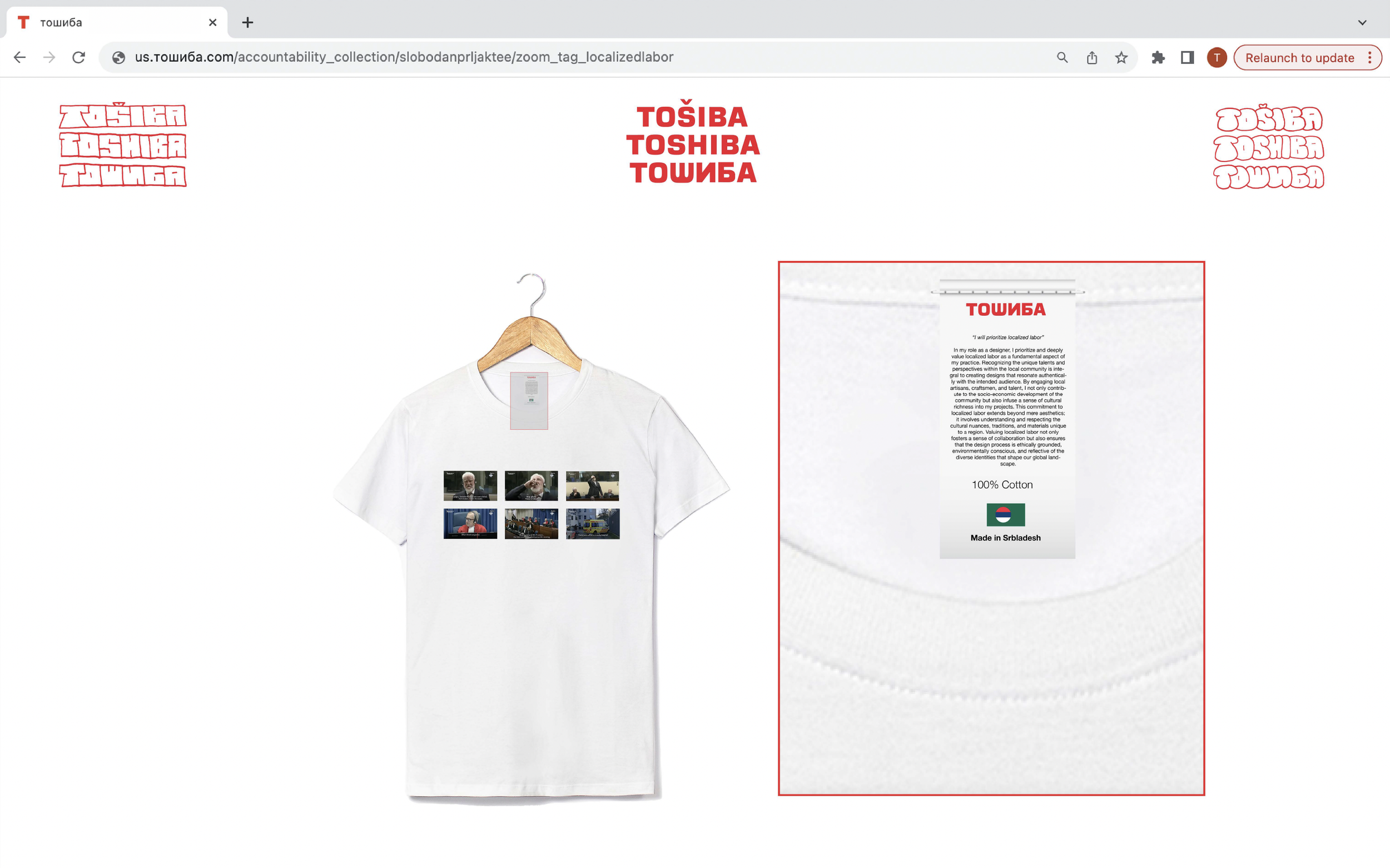

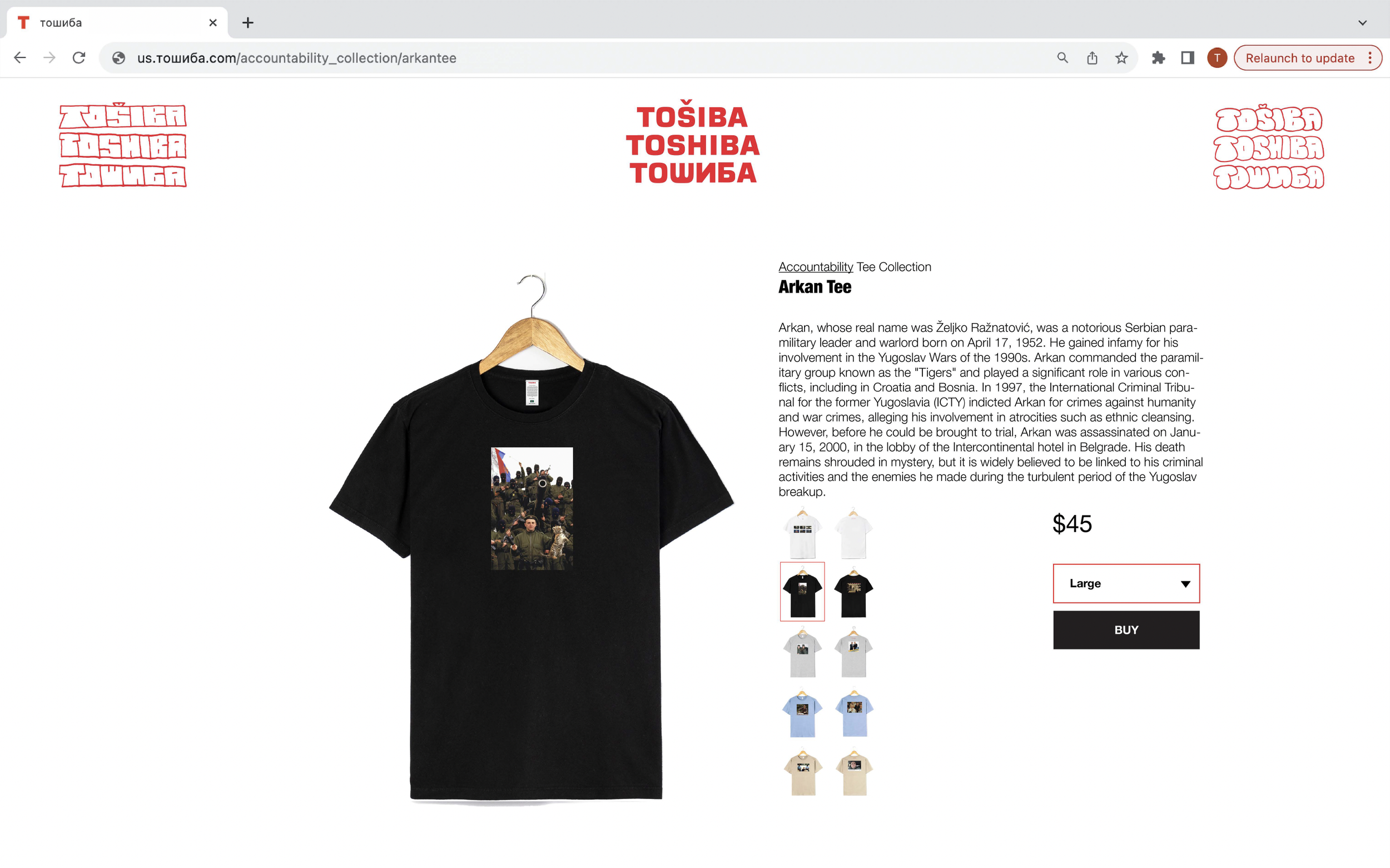
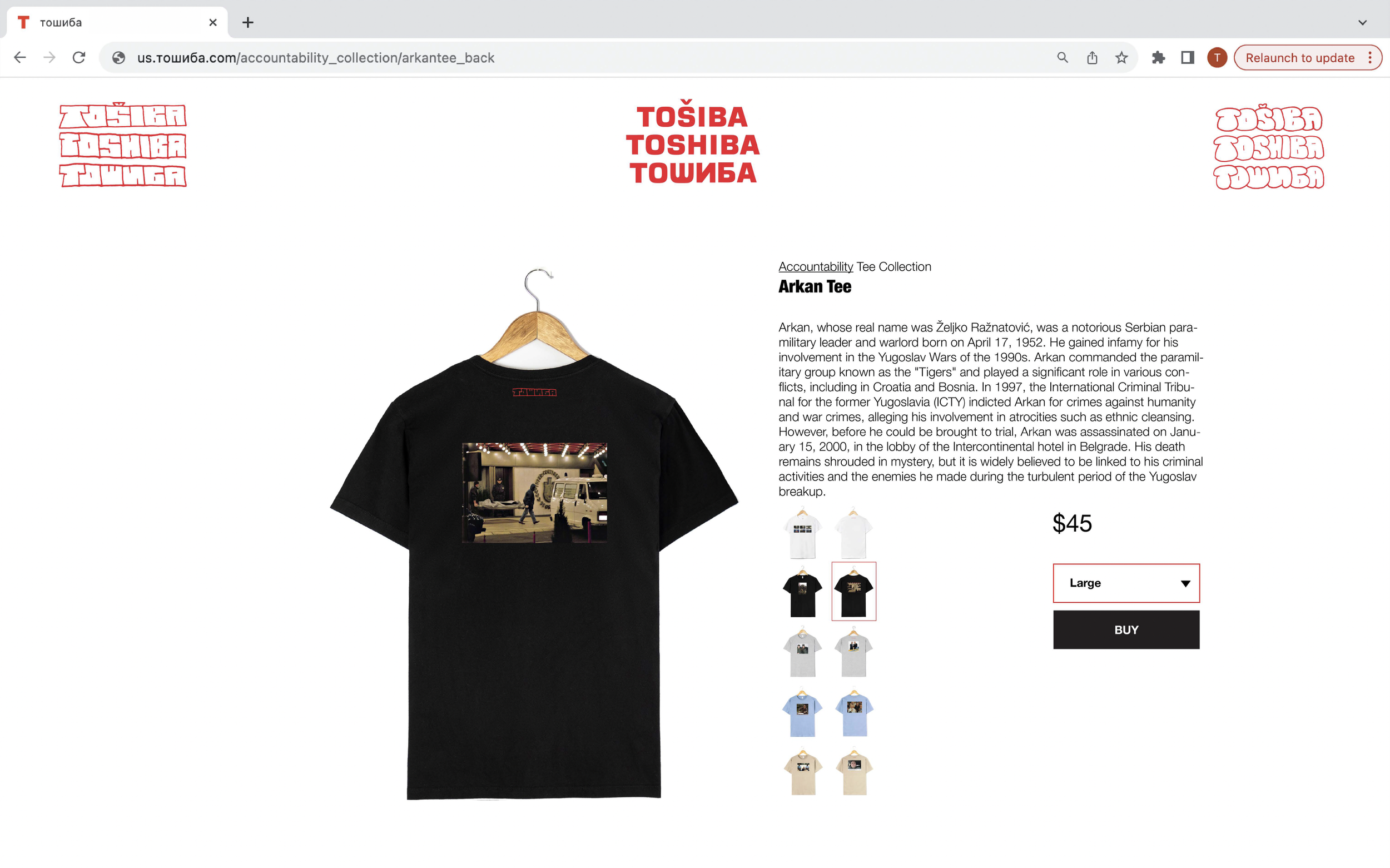
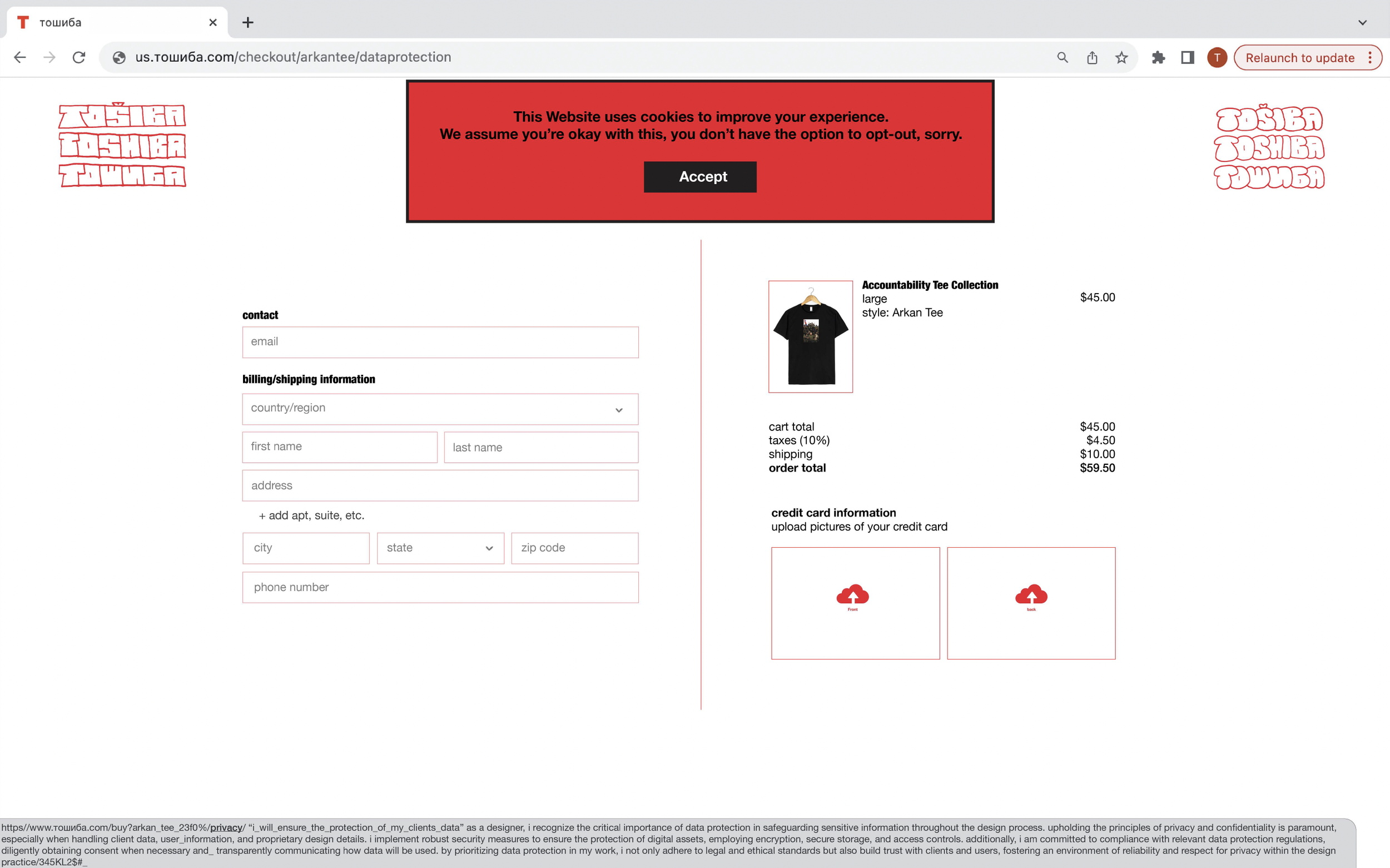
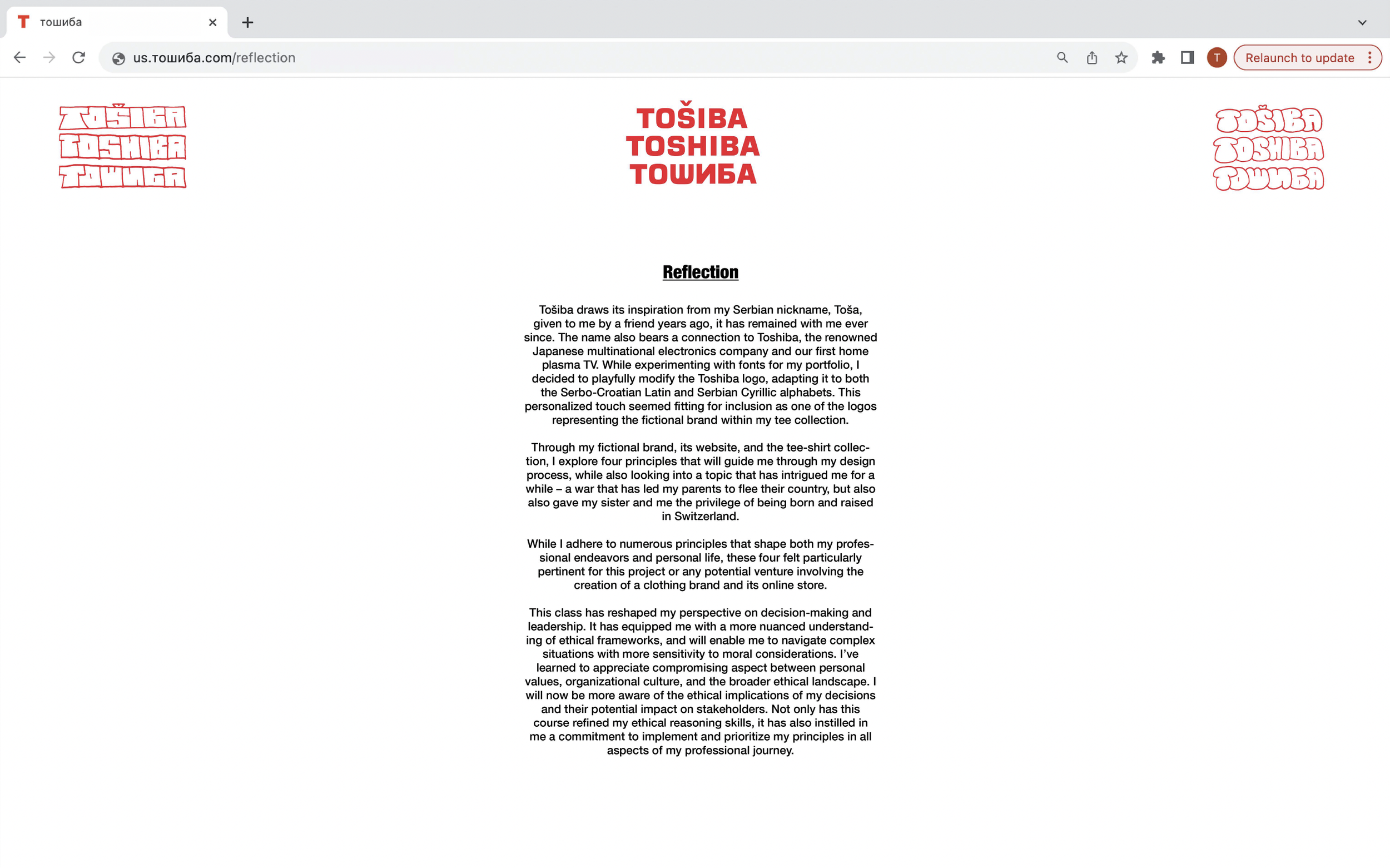
As part of the Accountability Tee collection, I delve into the lack of accountability exhibited by individuals indicted for war crimes at the International Criminal Tribunal for the former Yugoslavia (ICTY) concerning their heinous actions during the 1990s Yugoslav wars. The collection examines the repercussions of their choices on their subsequent trajectories, illustrating varying outcomes for these individuals—some lucky, while others far less so.
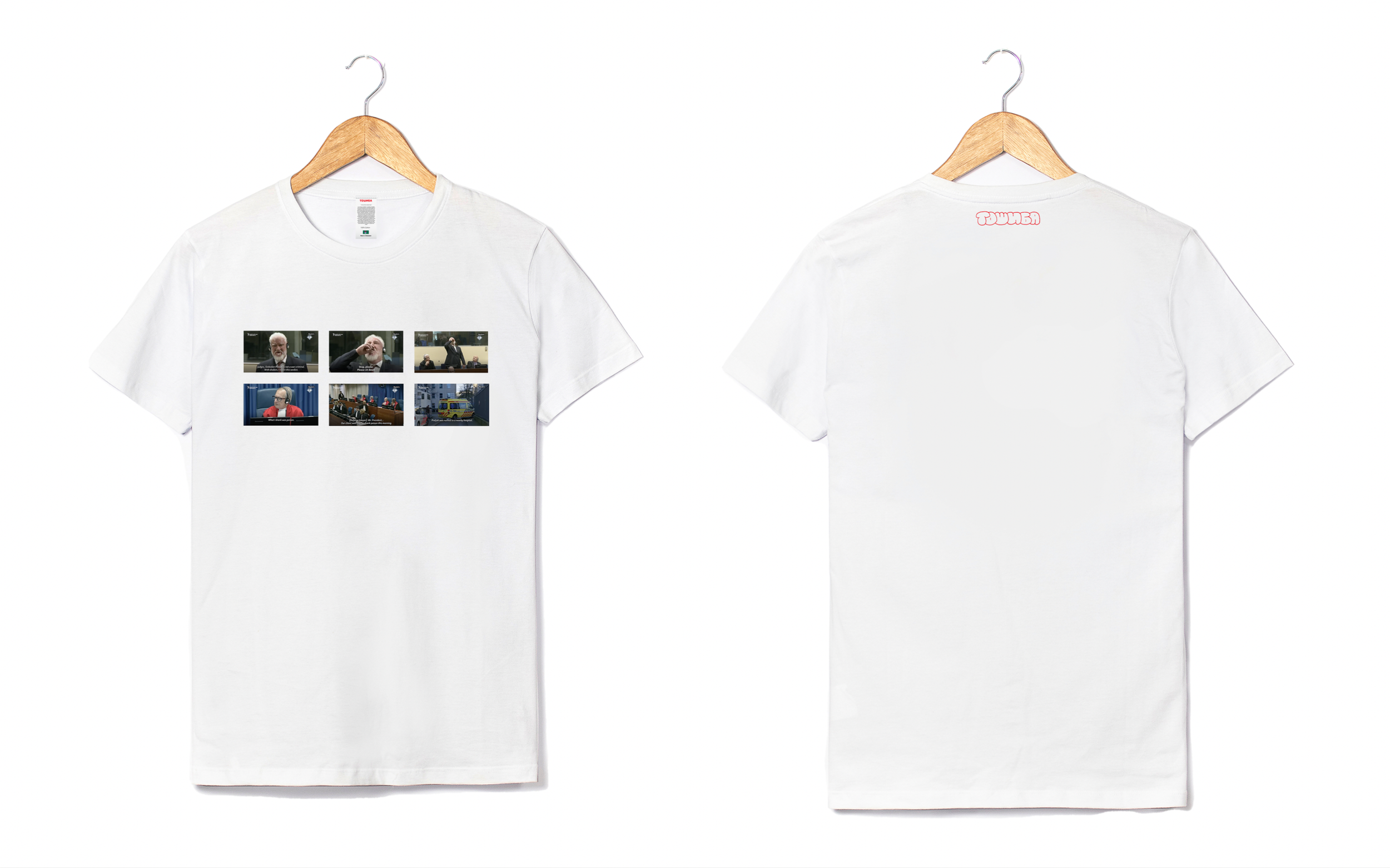
Slobodan Praljak faced charges related to his role in the Bosnian Croat forces during the Yugoslav Wars of the 1990s, particularly for his involvement in the Bosnian conflict. In 2017, during the reading of the ICTY's appeal judgment, Praljak shockingly declared his innocence, demonstrating a lack of accountability for his heinous actions during the war, and proceeded to ingest a vial of poison in the courtroom. Despite efforts to save him, Praljak died shortly after being rushed to the hospital. On this first T-shirt of the Accountability collection, we see 6 extracts of the shocking scenes during his sentencing.

Arkan, whose real name was Željko Ražnatović, was a notorious Serbian paramilitary leader and warlord born on April 17, 1952. He gained infamy for his involvement in the Yugoslav Wars of the 1990s. Arkan commanded the paramilitary group known as the "Tigers" and played a significant role in various conflicts, including in Croatia and Bosnia. In 1997, the International Criminal Tribunal for the former Yugoslavia (ICTY) indicted Arkan for crimes against humanity and war crimes, alleging his involvement in atrocities such as ethnic cleansing. However, before he could be brought to trial, Arkan was assassinated on January 15, 2000, in the lobby of the Intercontinental hotel in Belgrade. His death remains shrouded in mystery, but it is widely believed to be linked to his criminal activities and the enemies he made during the turbulent period of the Yugoslav breakup. Front of the T-shirt: Arkan and his paramilitary group: Tigers. Back of the T-shirt: Arkan's body being led out of the Intercontinental hotel in Belgrade after his assassination.
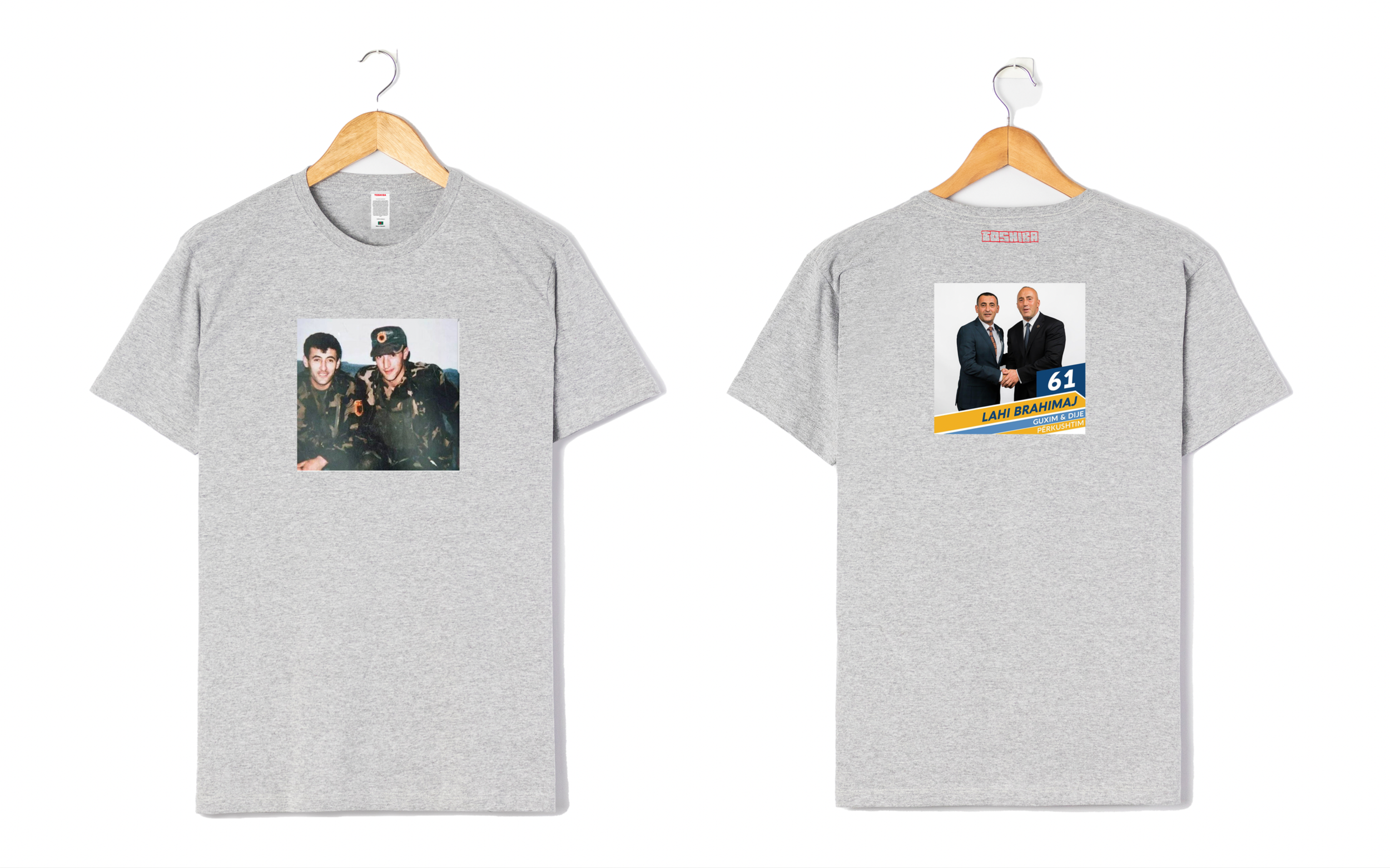
Ramush Haradinaj and Lahi Brahimaj were both former commanders of the Kosovo Liberation Army (KLA), an ethnic Albanian paramilitary that fought against Serbian forces during the Kosovo War (1998-1999). After the war, they were indicted by the ICTY for war crimes, including torture and mistreatment of prisoners. They were initially convicted but later acquitted on appeal. Currently, Lahi Brahimaj and Ramush Haradinaj remain involved in Kosovar politics and public life. They are active members of the Alliance for the Future of Kosovo (AAK), a political party led by Haradinaj. Front of T-shirt: Brahimaj and Haradinaj photographed together during the Kosovo War. Back T-shirt: Brahimaj and Haradinaj for a political campaign in 2019.
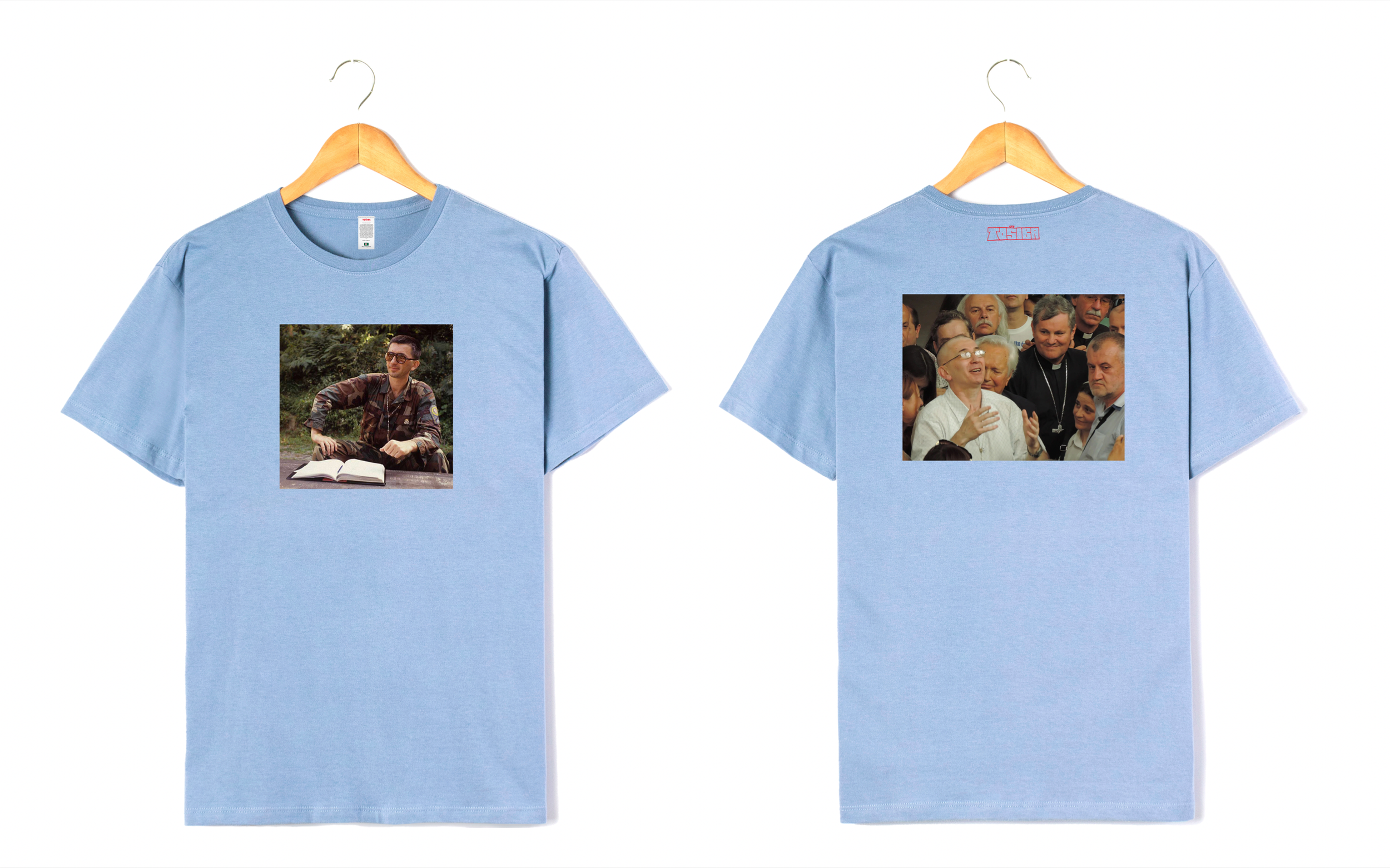
Dario Kordic, a Bosnian Croat politician and military leader, held leadership positions within the Croatian Community of Herzeg-Bosnia, an entity declared by Bosnian Croats during the war. In 2001, the ICTY indicted Kordic for war crimes and crimes against humanity. He was accused of orchestrating and participating in ethnic cleansing operations against Bosnian Serbs and muslims. Kordic was ultimately convicted in 2001 and sentenced to 25 years in prison. In 2004, the Appeals Chamber of the ICTY reduced his sentence to 20 years. Kordic was released from prison in 2014 after serving two-thirds of his sentence. Upon his release, several hundred people gathered at the airport to welcome back home from prison the man they consider a hero, not a war criminal. After tearfully embracing his wife and children, Kordic turned to the masses with an emotional speech in which he thanked God, the Catholic faith and the whole of the Croatian nation. Front of T-shirt: Kordic in uniform during the war. Back of T-shirt: Kordic welcomed back as a hero rather than a war criminal upon his release.
